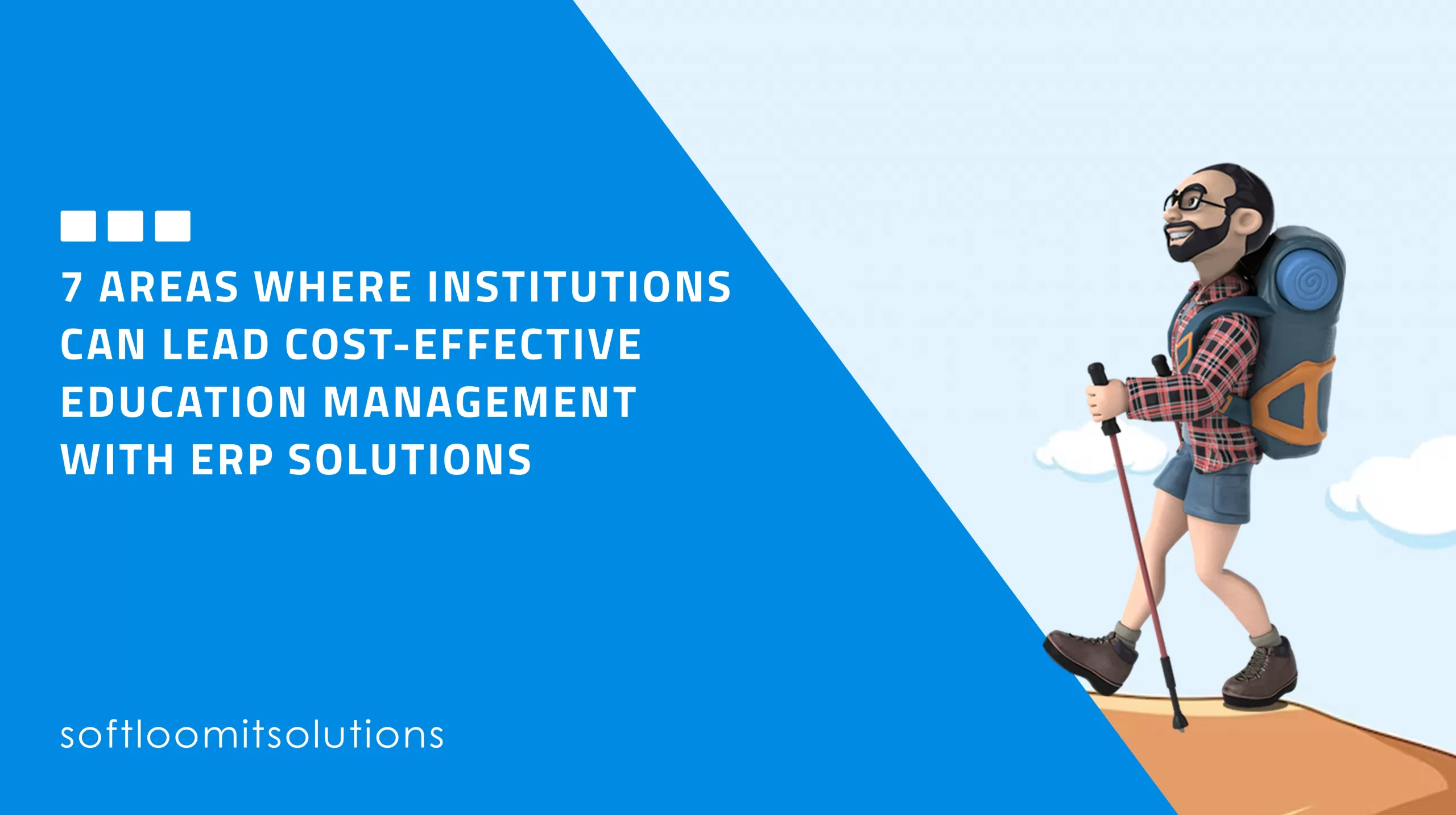Higher education institutions are under pressure to improve their operational processes in today’s digital age. To meet this need, Education Enterprise Resource Planning (ERP) systems have emerged as an innovative solution. These web or cloud-based software solutions help institutions manage their resources and operations more efficiently. This blog post will examine seven areas where institutions can lead cost-effective education management
Transparency in the Admission Process Attracts More Students
Adopting an Education ERP system can improve the admissions process’s transparency. This system manages student data, the application process, fee structures, and course details from a centralized platform, reducing administrative overhead and making the process smoother for prospective students. As a result, more applicants are attracted, leading to an increase in student enrollment and, ultimately, higher revenues.

Reduction in Paper Costs
Many educational institutions spend a lot of money on paper for tasks like record-keeping, communication, and exam material preparation. However, an ERP system can help by making these processes digital, reducing the need for paper. This is not only cost-effective but also helps create a more environmentally friendly and sustainable atmosphere.
Audit and Documentation Costs for Financial Records
Keeping track of financial records can be a long and expensive task for educational institutions. But with an ERP system, this process can be automated and all financial data can be stored in one convenient location. This not only makes auditing more efficient, but also lowers the expenses related to document storage and retrieval.

Expenditure Associated with Data Entry Errors
Making mistakes while entering data can result in unnecessary costs, mismanagement of resources, and decreased productivity. However, implementing an Education ERP can greatly minimize these errors by automating the data entry process. This not only ensures the accuracy of the data but also facilitates easy access to information, ultimately reducing costs associated with errors and rework.
No Need to Invest in Devices for Remote Workers
As institutions increasingly adopt remote work models, there is often a need to invest in additional devices or hardware. However, with a cloud-based ERP system, remote workers can access the method using their own devices, eliminating the need for institutions to provide additional hardware and thus saving on costs.
Reduction in Exam Costs
Institutions can lead a cost-effective education management through reducing exam-related costs by using an ERP system. With its help, exam schedules can be managed, question papers generated, answer scripts managed, and grading automated. This eliminates the need for manual work and lowers the related expenses.
Considerable Reduction in the Cost of Ownership
Compared to traditional management systems, Education ERP systems have a cost-effective education management and lower cost of ownership. This is because they require less hardware and fewer personnel to maintain the system, which results in reduced time spent on administrative tasks. As a result, managing the institution becomes considerably more cost-effective.
To sum up, introducing an Education ERP system can bring about substantial advantages for educational establishments. This not only enhances productivity and efficiency but also leads to significant cost reductions in various domains. It’s a strategic move that can result in long-term financial stability.
If your institution is thinking about implementing an ERP system, Softloom provides customized solutions to cater to your unique requirements. Get in touch with Softloom today to discover how a College ERP Software can revolutionize your institution and bring about considerable cost savings.






